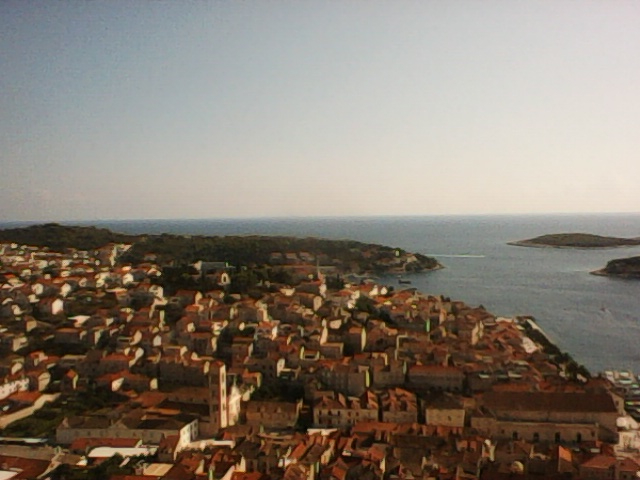| The Cage |
|---|
|
| There once was a girl, living on a beautiful island. The village where she lived at was set between a forest that was full of ancient tropic trees accompanied by flowers blooming in vivid colors in the ashes of the volcano that had been inactive for century's, and the grey cliffs, where huge swarms of seagulls nested near the winding paths down to the sandy beach. The girl lived long before the colonialists from faraway countries would find her shore, and we would describe the days of her and her kin as somewhat harmonic. The people knew how to gain what they needed from the surrounding nature, and they knew each other and the expectations that were laid upon them from their society. The autumn brought the wind and the whales, and spring brought the birds and the weddings. They lived as they needed to, and died when their time came. But this doesn't mean that their culture was a primitive one. When the headman of the village died, a tournament was held to determine his (it was, of course, always a man) successor: The young man of the village would try to climb to the caves harboring swallows nests on the highest cliff in the wild shark sea west of the isle. The first who returned with an intact egg would declared to be the son of the birds, and reign for the rest of his lifetime. It was a dangerous thing, wicked against the swallows, and surely a totally bonkers way of granting political power, but it had worked for centuries before the girl had lived, and this system would outlive her for still a few more to come. The resulting political decisions might not have always been the best, but good enough to avoid collective self-destruction (A thing that hasn't proven true for seemingly much more clever systems in much shorter periods of time). Maybe the ritual even ensured a certain permeability within the society: Where nearly everybody needs to life from labor, sportsmanship and courage are harder to inherit than property and education. The things that these people saw, the turtles, the palms, the birds and the clouds of the sky were bound into beautiful wood carvings and a delicate set of glyph, used to write down their history, thoughts and poetry. And even though most of the islands inhabitants weren't taught how to use these letters, we can suppose that they all felt as a part of the culture that was congregated through these collective legends and stories. Giant statues depicting the holy elders protecting them hemmed the shoreline. This shoreline however, was impenetrable. There was interaction with other islanders, but no realistic escape from the island except more or less certain death on the salty wave. Participating was not a choice this girl had. How free was the girl on the island? Probably she couldn't fully decide how her life would go on. Maybe she was the offspring of a poor family, and her people longed for the society to change to something more democratic? Did she dream of complex machines and tools to lighten the burden of her work? Or were they all okay with the rule of the colossal statues and their priests? But even then, didn't she surely dream of wondrous cures when her parents, friends or children died from bacterial infections? Is there a better possibility between imagining her living happy within an idealized, kitschy noble-savage fascism and the opposite where a young women is chained by the underdeveloped society surrounding her? What would she have gained if she could have entered our world where the atomic bomb reigns over a land in the shadow of the holocaust, and would she have decided for it if she have had the choice? |
